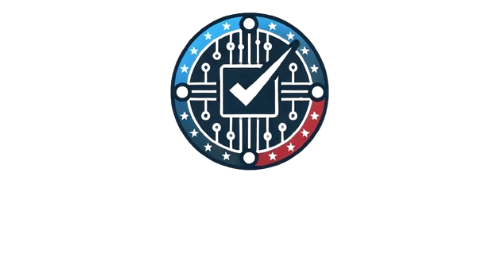When Bitcoin was first introduced in 2008, it wasn’t just a new form of currency—it was the beginning of a technological revolution. Bitcoin’s underlying technology, blockchain, brought with it the promise of secure, decentralized, and transparent transactions. While Bitcoin has transformed the world of finance, the principles behind its blockchain are now being applied far beyond cryptocurrencies. At Voting On The Blockchain, we believe that the technology pioneered by Bitcoin is key to creating a more secure and trustworthy voting system for the future.
Bitcoin’s Legacy: Pioneering Decentralization and Security
Bitcoin was the first successful implementation of a decentralized digital currency. It introduced the world to blockchain, a distributed ledger technology that records transactions across a network of computers. This decentralized nature means that no single entity controls the network, making it highly secure and resistant to tampering.
The success of Bitcoin demonstrated the potential of blockchain to create systems that are not only secure but also transparent and immutable. These qualities—decentralization, transparency, and immutability—are exactly what modern voting systems need to overcome the challenges that have plagued traditional methods.
Lessons from Bitcoin: Applying Blockchain to Voting
The principles that have made Bitcoin successful can be directly applied to voting systems. Here’s how:
- Decentralized Consensus: In Bitcoin, transactions are validated by a network of nodes, rather than a central authority. This decentralized consensus ensures that no single party can manipulate the system. In a voting context, decentralized consensus can prevent tampering with votes and ensure that the final tally is accurate and trustworthy.
- Immutability: Once a Bitcoin transaction is recorded on the blockchain, it cannot be altered or deleted. This feature is critical for voting systems because it ensures that once a vote is cast, it is permanent and unchangeable. This immutability protects the integrity of election results.
- Transparency: Bitcoin’s blockchain is publicly accessible, meaning anyone can verify transactions without revealing personal information. Similarly, a blockchain-based voting system could allow for public verification of votes while maintaining voter anonymity. This transparency would help build trust in the electoral process, as voters could see that their votes were counted accurately.
From Cryptocurrency to Voting: The Evolution of Blockchain Applications
Bitcoin’s success laid the groundwork for the expansion of blockchain technology into other areas, including voting. The same features that make Bitcoin a secure and decentralized currency can be used to create voting systems that are resistant to fraud and manipulation.
Several pilot projects have already tested the viability of blockchain voting. For example, West Virginia’s 2018 pilot project allowed military personnel stationed overseas to vote securely using a blockchain-based system. This project demonstrated that the principles behind Bitcoin’s blockchain could be adapted to meet the needs of modern voting systems, offering a secure and transparent alternative to traditional methods.
Challenges and Opportunities: Adapting Blockchain for Voting
While the potential of blockchain voting is clear, there are challenges that must be addressed to make it a widespread reality:
- Scalability: Bitcoin’s blockchain, while secure, can be slow and resource-intensive. Scaling this technology to accommodate millions of voters in national elections will require significant innovation and infrastructure.
- Public Adoption: Gaining public trust in a new voting system is critical. Voters must be convinced that blockchain voting is not only secure and transparent but also a better alternative to the systems they are familiar with.
- Legal and Regulatory Hurdles: Governments and election authorities may be cautious about adopting new technologies. Ensuring that blockchain voting systems comply with legal and regulatory requirements will be essential for their widespread adoption.
Despite these challenges, the opportunities presented by blockchain voting are immense. By leveraging the technology pioneered by Bitcoin, we can create a voting system that is more secure, transparent, and trustworthy than anything we’ve seen before.
Future Implications: How Blockchain Could Revolutionize Voting
The transition from Bitcoin’s blockchain to voting systems represents a broader trend of applying innovative technologies to solve complex societal challenges. Just as Bitcoin revolutionized the financial world, blockchain voting has the potential to transform how we conduct elections.
Beyond political elections, the principles of blockchain voting could be applied to any situation where secure, transparent decision-making is essential. This includes corporate governance, shareholder voting, and even community decision-making processes. The adaptability of blockchain technology means that it can be tailored to meet the unique needs of different types of voting, making it a versatile tool for the future.
Conclusion: From Bitcoin to Ballots
Bitcoin introduced the world to the potential of blockchain technology, demonstrating how a decentralized and secure system could operate without the need for central control. At Voting On The Blockchain, we see Bitcoin as more than just a financial innovation—it’s a catalyst for a broader technological revolution.
By applying the principles of Bitcoin’s blockchain to voting, we can create a system that is secure, transparent, and trustworthy, ensuring that every vote counts. As we continue to explore the possibilities of blockchain voting, we’re excited about the future and what it holds for the integrity of our democratic processes.
Join us on this journey as we work to bring the security and transparency of blockchain to the voting systems of tomorrow.

